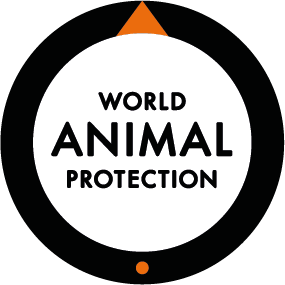What's going out of Africa?
The continent of Africa is home to some of the world's most majestic and iconic wildlife. Sadly, it is also home to some of the world's most cruel, dangerous, and exploitative wildlife trading.
Some of the activity is criminal. Some of it is legally authorized. All of it is cruel.
Every day we learn more about the dangers of this trade, and how it is putting our own future at risk.
We are at a biodiversity tipping point - we must take action now before we potentially trade thousands of species into extinction.
It's bigger than you think. Explore the scale of this devastating trade. Witness how these incredible animals are treated from the moment of capture to the point they are shipped around the planet. Follow along as we journey from the overwhelming traditional medicine markets of Benin, to the brutal trapping of grey parrots in the Congo, and the shocking export of lion bones from South Africa.
And find out what you can do to help stop it before it's too late.
Pythons from West Africa
More than three million Ball pythons have been exported from West Africa, to Europe, Asia and North America over the past 45 years.
African ball pythons are the most legally exported live animal from Africa but that doesn't make it safe or sustainable.
Wild-caught or bred in captivity, reptiles are well-documented as potential carriers of pathogens, such as parasites and viruses, and in particular of human illness-causing bacteria. We know that snakes can become vectors of diseases that also make humans sick while seeming perfectly healthy and unaffected themselves.
Snake farms in West Africa also trade in other species such as bats, civets and primates, which increases the risk of more dangerous and virulent pathogens arising that can be passed to other species, including humans.
One thing that makes Ball pythons a popular exotic pet is the misconception that they require little specialized care. But the reality is that snakes, including Ball pythons, have complex and specific requirements to meet even their most basic needs in captivity.
These misunderstood animals suffer from the moment of capture or being born at a breeding facility, through to their life of captivity.
The traditional medicine markets of Benin
While conducting research for a documentary on the international trade of Ball pythons as pets, we discovered the heartbreaking reality of the wild animal derivatives trade in West Africa at traditional medicine and fetish markets, where pangolin heads, baboon skulls and dead birds lay alongside live animals like tortoises.
The grey parrots from West and Central Africa
Research indicates that as many as 1.3 million grey parrots have been poached from African forests, putting this species on the brink of extinction.
Trappers are catching these parrots in many countries in West and Central Africa, but the Democratic Republic of Congo (DRC) remains a particularly major source of concern.
After the wild parrots are caught, illegally trafficked African grey parrots have their flight feathers brutally hacked off to prevent them from escaping, they’re then crammed into small, dirty containers ready for transport. Sadly, these parrots have a mortality rate of 66% and that’s even before they’ve left the country… the ones who survive the journey go on to a life of misery.
Despite the fact that the international commercial trade of wild caught African grey parrots is illegal, these parrots continue to be captured to feed the international demand for them as pets. Traders will use the legal trade of Green parrots to export illegally caught African grey parrots in the same shipment. They will cram the shipping boxes with a mix of birds, and only document the crate consisting of Green parrots.
The traffickers even put green gauze over the window so that if someone were to peer in the window of the shipping crate all the birds would look green rather than a mix.
Lion bones from South Africa
Between 8,000 - 12,000 lions are currently held captive in some 300-400 farms in South Africa, the world’s largest exporter of farmed lion bone, skulls, skeletons, bodies, claws and teeth. Lion bones are shipped around the world to be used in Traditional Asian medicine, particularly lion bone wine and bone ‘glue’.
Sadly, trade and export of lion bones from South Africa is legal as long as the numbers are within an annual quota. Despite this, a 2018 study showed that people are not even following these rules. The study found up to three times the limit were being killed and exported through false declaration of how many skeletons a shipment contains.
Between 2007 and 2016, South Africa was the biggest exporter of lion products – it has been estimated that at least 70 metric tonnes of bone products were shipped between 2008-2016.
These majestic big cats are intensively farmed in cruel, and typically barren conditions that increase the risk of disease.
You have the power to fix this
You now know that the global wildlife trade is much bigger and much more dangerous than you thought it was. You know that for many species remaining wild populations are being driven to extinction. You know that millions of animals are suffering every single day. You know that the conditions these animals are forced to endure are a hotbed for disease. You know that diseases can be transferred between wildlife and humans. And as of this year, you know how truly devastating a new and emerging infectious disease can be when it spreads across the world.
You can help stop the next pandemic by taking action today. Please sign the petition now so we can deliver it to the G20 summit in Saudi Arabia this November. Sign it and tell the world's leaders that you demand an end to the global wildlife trade before it's too late.
